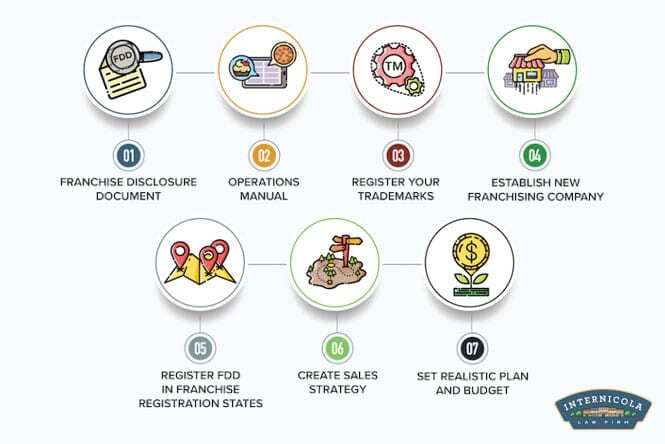Tips For Starting A Franchise Business

Imagine stepping into a bakery, the aroma of warm bread and freshly brewed coffee filling the air. Sunlight streams through the window, illuminating rows of golden croissants and smiling faces. This isn't just any bakery; it's a franchise, and for many aspiring entrepreneurs, the dream of owning a similar business is within reach.
Starting a franchise can seem daunting, but with careful planning and informed decision-making, it can be a rewarding path to business ownership. This article provides essential tips and insights to guide prospective franchisees toward success.
Understanding Franchising
Franchising offers a unique blend of independence and support. You own and operate your own business, but you do so under the established brand and system of a franchisor.
This means you benefit from brand recognition, proven business models, and ongoing training and support, reducing some of the risks associated with starting a business from scratch.
Is Franchising Right for You?
Before diving in, ask yourself some key questions. Are you comfortable following a pre-established system? Do you have the necessary capital for the initial investment and ongoing fees?
Do you possess the determination and work ethic required to succeed as a business owner? Honest self-assessment is crucial.
Key Steps to Starting a Franchise
Research is the bedrock of any successful franchise venture. Explore different franchise opportunities within your desired industry.
Consider your interests, skills, and financial capabilities. Reputable websites like the Small Business Administration (SBA) and the International Franchise Association (IFA) offer valuable resources and directories.
The Franchise Disclosure Document (FDD)
The Franchise Disclosure Document (FDD) is your bible. This legally mandated document contains vital information about the franchise system, including its history, financial performance, fees, and legal obligations.
Thoroughly review the FDD with the help of an experienced franchise attorney and accountant.
Pay close attention to Item 19, which may contain financial performance representations, and scrutinize any claims made by the franchisor.
Securing Financing
Franchises typically require a significant initial investment, encompassing franchise fees, startup costs, and working capital. Explore various financing options, including loans from banks, credit unions, and the SBA.
Many franchisors also offer financing programs or have relationships with lenders specializing in franchise financing. Preparing a solid business plan is essential for securing funding.
Location, Location, Location
The location of your franchise can significantly impact its success. Research potential sites, considering factors such as demographics, competition, visibility, and accessibility.
The franchisor often provides guidance on site selection, but it's crucial to conduct your own due diligence. Understanding your target market and their needs is paramount.
Training and Support
One of the key advantages of franchising is the training and support provided by the franchisor. Take full advantage of these resources.
Attend all training sessions, ask questions, and actively engage with the franchise system. Building strong relationships with your franchisor and fellow franchisees can be invaluable.
According to the IFA, ongoing support is a major factor in franchisee success.
Legal and Financial Considerations
Engage experienced professionals, including a franchise attorney and a certified public accountant (CPA), to guide you through the legal and financial complexities of franchising. They can help you understand the franchise agreement, negotiate favorable terms, and manage your finances effectively.
Proper legal and financial advice can protect your interests and ensure compliance with all applicable regulations.
Building a Successful Franchise
Once your franchise is up and running, focus on providing excellent customer service, building a strong team, and implementing effective marketing strategies. Consistent effort and dedication are essential for long-term success.
Embrace the franchise system while also finding ways to innovate and improve your local operation. Adaptability is key in a dynamic business environment.
Starting a franchise is a significant undertaking, but with careful planning, thorough research, and a strong work ethic, it can be a rewarding journey to business ownership. The support of a reputable franchisor, coupled with your own entrepreneurial spirit, can pave the way for a thriving and fulfilling career.


















